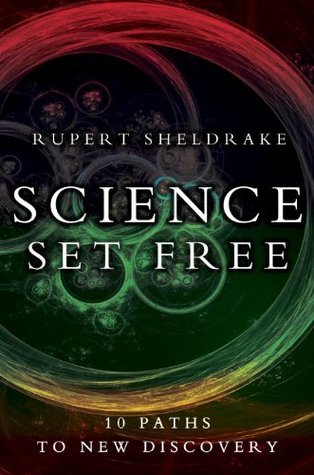More on this book
Community
Kindle Notes & Highlights
Read between
October 10, 2015 - October 31, 2019
holons.
For example, the structure and meaning of this sentence could not be worked out by a chemical analysis of the paper and the ink, or deduced from the quantities of letters that make it up (five as, one b, five cs, two ds, etc.). Knowing the numbers of constituent parts is not enough: the structure of the whole depends on the way they are combined together in words, and on the relationships between the words.
In the course of evolution, new holons arise that did not exist before: for example, the first amino acid molecules, the first living cells, or the first flowers, or the first termite colonies. Since holons are wholes, they must arise by sudden jumps. New levels of organization “emerge” and their “emergent properties” go beyond those of the parts that were there before. The same is true of new ideas, or new works of art.
Is the mechanistic worldview a testable scientific theory, or a metaphor? If it is a metaphor, why is the machine metaphor better in every respect than the organism metaphor? If it is a scientific theory, how could it be tested or refuted?
as irrelevant; dualists accepted
Conscious experience does nothing, and makes no difference to the physical world.
material bodies
According to quantum physics, every primordial element of matter is “an organized system of vibratory streaming of energy.”
A wave does not exist in an instant, it takes time; its waves connect the past and the future. He thought of the physical world as made up not of mater...
This highlight has been truncated due to consecutive passage length restrictions.
pressure of the past (the physical world). Subjectivity (consciousness, awareness) is what-it-feels-like to experience these possibilities, and choosing from them to create the next new moment of experience.33
Like humans, animals are largely creatures of habit.
But can we meaningfully say that electrons have experiences, feelings and motivations?
“The question is whether matter is rather crude and mechanical or whether it gets more and more subtle and becomes indistinguishable from what people have called mind.”
There are no metaphor-free zones in science.
The whole of science is suffused with legal metaphors, as in “laws of nature,” materialist theories of mind by computer metaphors, and so on.
Your thoughts, desires and decisions cannot interfere with regular physical causality. Your choices are illusory. Materialism promises that, at some time in the future, all human behavior and beliefs, including the belief in materialism, will be fully explained by the physical and chemical mechanisms of human brains, together with random events inside and outside human bodies. But
Perhaps you are really conscious.
Maybe all organisms, physical and biological, have experiences and feelings, including atoms, molecules, crystals, cells, tissues, organs, plants, animals, societies of organisms, ecosystems, planets, solar systems and galaxies.
how non-physical minds could interact with material brains, and
Purposes relate to ends or goals or intentions, conscious or unconscious. They link organisms to their potential futures.
including feedback loops.19 Thus there are three main holistic approaches. First, systems theorists aspire to build new kinds of mathematical models of systems’ “emergent properties,” but implicitly assume that only known kinds of physical fields and forces
Gravity attracts toward future ends. In this sense, it works backward in time.
Is everything being drawn toward a gravitational goal or attractor?
Could creativity be an end in itself?
A structure to him meant a habit, and a habit implied not only an internal need but outer forces to which, for good or evil, the organism had to become habituated
In 1976, Richard Dawkins proposed the term “meme” for a unit of cultural inheritance, by analogy with gene:
Genes are not individualistic and selfish, despite the rhetoric suggesting they are.
Everything we do, see and think is shaped by habits and memories.
The whole is present in each part.
Generally speaking, we do not notice what stays the same; we notice changes or differences.
What is not connected is forgotten.
If rats learn a new trick in one place, then rats all over the world should be able to learn the same trick quicker.
emotional closeness is more important than physical proximity.28
deluded
There is a simple way to find out by doing experiments on experiments.
For example, creationists, who deny evolution, use the techniques of critical thinking to highlight problems with evolutionary theory and expose weaknesses in the evidence, such as gaps in the fossil record. Is this because they are seeking truth? No. They believe they already know the truth.
Skepticism is a weapon to defend their beliefs by attacking their opponents.
In practice, the goal of skepticism is not the discovery of truth, but the exposure of other people’s errors.
able to function. And so on. No one can claim absolute primacy. Everything is interlinked.


